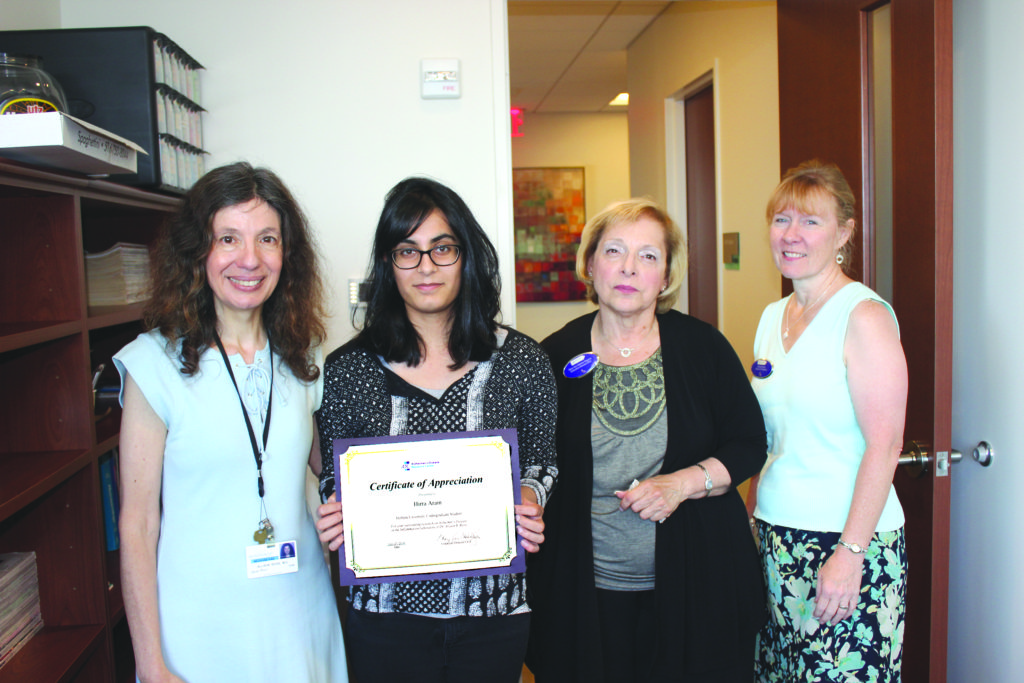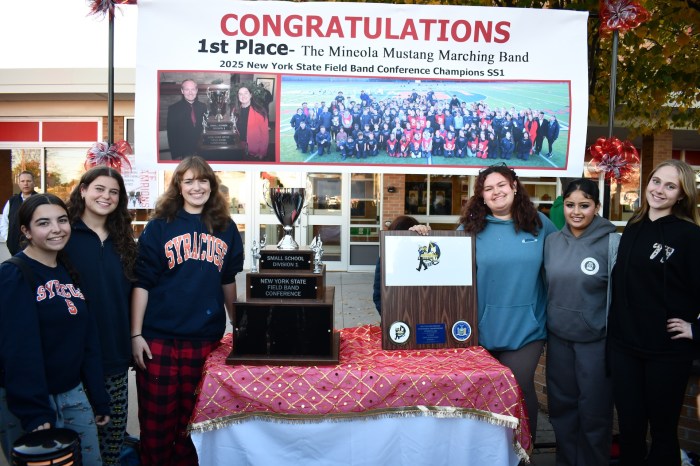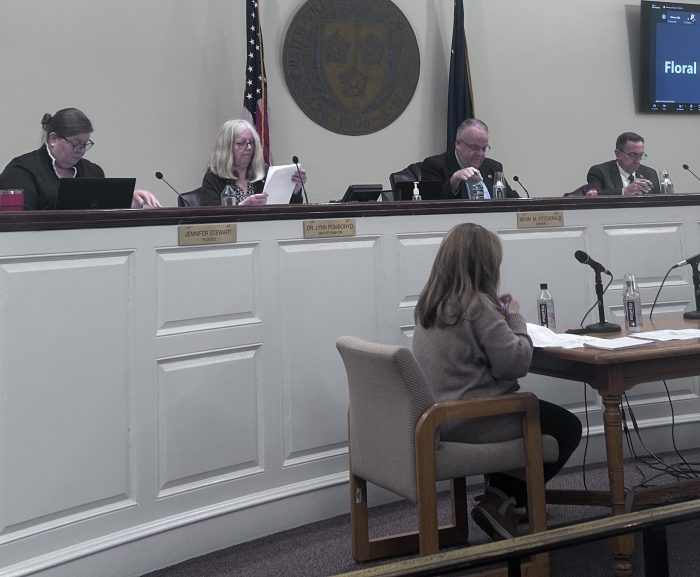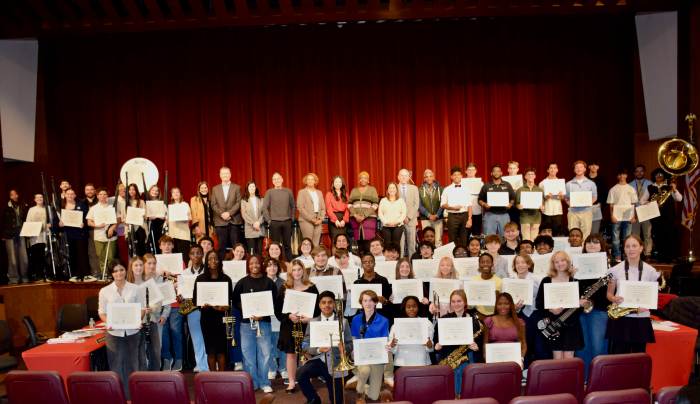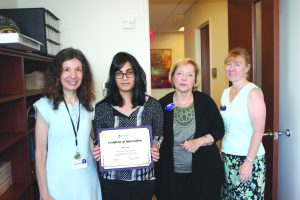
Members of Winthrop-University Hospital’s research team recently surprised Hofstra University undergraduate and Floral Park resident Hirra Arain with a celebration to honor her work in Alzheimer’s Disease (AD) research. At the gathering, representatives from the Alzheimer’s Disease Resource Center (ADRC) presented a Certificate of Appreciation and stipend to the young researcher, who has volunteered at Winthrop since last summer.
Arain’s research focuses on the link between diabetes and increased risk for AD, and what role a person’s environment plays in the risk for the brain disorder.
“I love the research and how friendly everyone is here at Winthrop,” she said.
Arain is entering her junior year at Hofstra, where she majors in biology. She is interested in neurology, and is drawn to AD in particular because of the impact it has on both the patient and families dealing with the disease.
“It’s so debilitating for the patient, and for the caregivers who witness it,” Arain explained.
Dr. Allison Reiss, head of the Inflammation Section at the Winthrop Research Institute, organized the celebration and praised Arain’s hard work, dedication, intelligence and contributions to Winthrop.
“She is totally devoted and very intuitive, skills that you need in order to be a good scientist,” Reiss said. “She does more than just the work, going a step further by asking important questions which is what distinguishes a good scientist. She is always looking for the ‘why.’”
This is not the first time Arain has received recognition for her work. She was honored by the American Federation of Medical Research (AFMR) with the Eastern Region Scholar Award at the organization’s meeting in Washington, D.C. in April. There, she presented an abstract of a paper she is working on with the Winthrop team. The paper, on amyloid toxicity and the link between diabetes and AD, is currently in preparation. A second paper summarizing current knowledge in the field of amyloid and the brain, was just pre-approved for submission to Progress in Neurobiology, a prestigious medical journal. Reiss’s strict standards make it unusual for an undergraduate to be listed as an author, but she said: “I am proud to put my name next to Hirra’s. She is invaluable.”
 Arain sought out her volunteer position at Winthrop due to Reiss’s reputation and after finding news about the Alzheimer’s Foundation of America awarding Winthrop a grant for Reiss’s study called “Platelet-Rich Plasma in the Study of Alzheimer’s Pathophysiology.”
Arain sought out her volunteer position at Winthrop due to Reiss’s reputation and after finding news about the Alzheimer’s Foundation of America awarding Winthrop a grant for Reiss’s study called “Platelet-Rich Plasma in the Study of Alzheimer’s Pathophysiology.”
Members of the Winthrop team are grateful the talented researcher found her way here.
“Winthrop is fortunate to have the skills and commitment of Ms. Arain, who at this early stage of her career is able to help make contributions to the field of neurologic and dementia research,” said Dr. Irving Gomolin, chief of Geriatric Medicine at Winthrop.
“Hirra is an exceptionally gifted young woman who has become an important member of our Alzheimer’s team. The work we are doing here at Winthrop attracts the best talent and gives reason for optimism in our fight for progress against AD,” said Dr. John Maesaka, a nephrologist at Winthrop who also studies AD.
Arain hopes to keep volunteering at Winthrop, and said the experience has helped her find her focus for the future. After college, she plans to pursue a medical degree and continue research.
“The Alzheimer’s Disease Resource Center (ADRC) is pleased to support the important research work that is going on at Winthrop,” said Mary Ann Ragona, executive director and chief executive officer of the ADRC. “Bright minds like Hirra Arain’s will be the key to unraveling the mystery of Alzheimer’s Disease. Winthrop has the ability to unlock that mystery and ADRC is proud to be a part of this research process.”
For information about research initiatives at Winthrop, call 1-866-WINTHROP or visit www.winthrop.org.
—Submitted by Winthrop University Hospital




